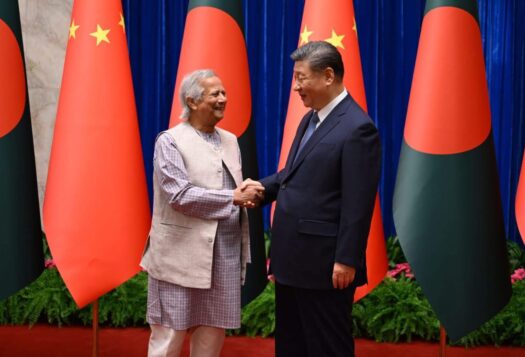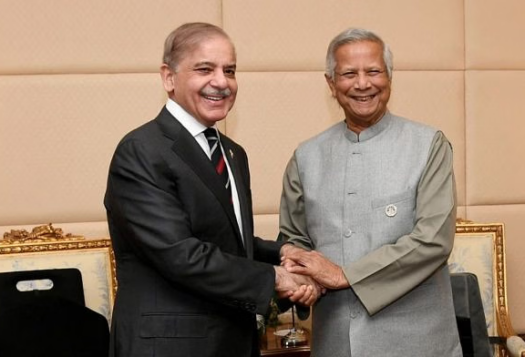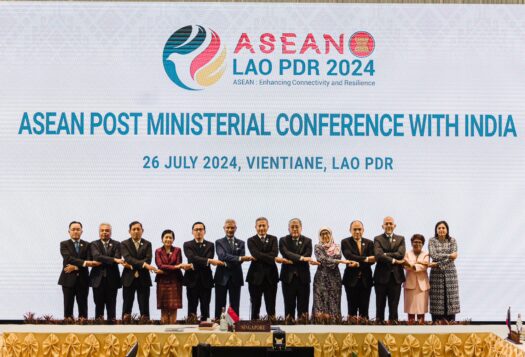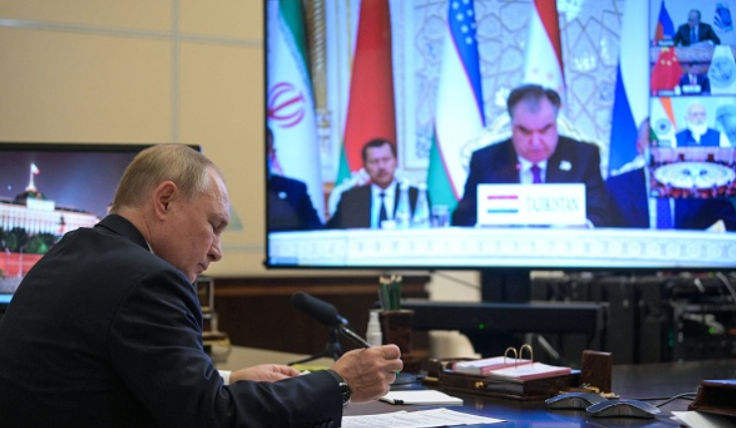
With the U.S. withdrawal from the region, Russian experts have been engaging with Afghanistan’s changing realities with greater intensity, frequency, and candor. The efforts to align their position reflect a departure from past reticence towards involvement in the country after the end of the Soviet Union’s own decade-long involvement in Afghanistan in 1989. Russia is currently using a diverse set of tools—including its diplomatic clout and military muscle—as part of its engagement with Afghanistan, as well as Central and South Asian states. With this multitrack approach, Russia is interested in consolidating its military presence in Central Asia, strengthening its reputation as a key diplomatic partner in the region, and becoming a more significant player in connecting the Afghanistan economy to outlets in Central, South, and West Asia.
Russian Diplomacy & Motivations
Russia, along with countries including Qatar, Turkey and Pakistan, has backed a negotiated mechanism that could safeguard the representation of all Afghan ethnic and political groups. Such a setup would better serve not only Afghans and their Central Asian neighbors but also Russia’s role as a strategic ally and economic partner—although how “inclusive” the government will be remains in question. However, Russian officials also anticipate that working with the Taliban will allow them to safeguard their national interests. While Russia has not recognized the Taliban government and still officially designates the group as a terrorist organization, it has hosted delegations from the Taliban along with other Afghan representatives as part of the previous negotiations process, and has been accused by the United States and others of supporting the group militarily in the past.
Russia is interested in consolidating its military presence in Central Asia, strengthening its reputation as a key diplomatic partner in the region, and becoming a more significant player in connecting the Afghanistan economy to outlets in Central, South, and West Asia.
Russia also remains eager to be a part of the “extended Troika” ensuring stability in and around Afghanistan, along with representatives of China, the United States, and Pakistan. Russian officials have also engaged in broader regional outreach consulting officials from countries such as Turkey, India, and Iran, and Moscow remains cognizant of the role these regional states can play in addressing areas of mutual concern—such as extremist groups including the Islamic State of Khorasan Province and drug trafficking. Addressing one of its primary concerns of militancy spreading across the region and into Central Asia, the Russian Foreign Minister Sergei Lavrov has noted that the Taliban has given assurances that had “[they have] no intention of destabilizing neighboring countries.” Worries of instability seem to have also framed ties with Pakistan, the Deputy Speaker of the Russian Senate, Konstantin Kosachev, recently stressed that Pakistan, and its Pashtun population in particular, had a considerable role to play in deterring “the spread” of radicalism. As the United States has withdrawn from the region, Russia’s ties with Pakistan have seemed to warming, with Afghanistan one of the main topics of conversation in high-level meetings and phone conversations.
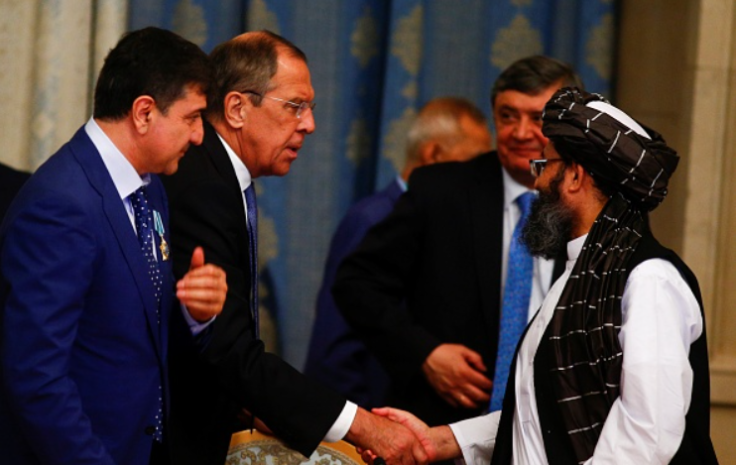
Multi-country initiatives and multilateralism—as highlighted by the recent meeting between the Taliban and envoys from China, Pakistan, and Russia—provides both a means for Russia to address its interests in the region as well as strengthen its diplomatic clout and legitimacy of its involvement. Afghanistan was also key topic of the most recent Shanghai Cooperation Organization (SCO) and Central Security Treaty Organization (CSTO) summit in Dushanbe, where state leaders also emphasized the challenges faced in terms of cross-border narcotics trafficking and extremism. These challenges were also stressed in a joint statement released by Russia, China, Pakistan, and new-SCO member, Iran, after meeting on sidelines of the summit.
Moscow also hopes that peacebuilding efforts in collaboration with other states may yield lasting dividends, and will enable it to play an advantageous role in future energy and transport linkages, financed primarily by Chinese investment in the region. Highlighting the chaotic withdrawal, Russia has called for the United States to unfreeze government reserves and restore aid to region. Although Russia’s economic footprint is small, it also has the beginnings of its own projects in the including Russian Railways support for a railway network between Mazar-i-Sharif, Kabul, and Peshawar in Pakistan. This project, costing an estimated USD $5 billion, involves the construction of a 356 miles railway line with an annual transit potential of up to 20 million tons of cargo. Russia also hopes to gain a fair share once Afghanistan’s infrastructure and mining sectors pick up activity. For Moscow, such steps come under its Eurasian integration initiative which it hopes to connect with China’s Belt and Road Initiative.
The Russian Security Umbrella
Following the U.S. withdrawal, states bordering Afghanistan have increasingly realized the need to align their policies with the region’s evolving realities and emerging power brokers including Russia and China—which have a common interest in keeping NATO out of the region—step in to fill the gap. Afghanistan’s Central and South Asian neighbors have expressed concerns of a refugee influx, which could worsen the instability experienced during the economic slowdown induced by the continuing COVID-19 pandemic, as well as extremist groups operating under a Taliban-controled Afghanistan.
Intensifying contacts and holding joint manoeuvers under the CSTO has also helped pull some of the wavering Central Asian countries more firmly under Russia’s security umbrella to retain and secure Moscow’s influence in Central Asia and in Afghanistan.
While China may be the economic power in Afghanistan, Beijing will allow Moscow to flex its military muscle as China focuses on its infrastructure projects. Although Russia has no interest in troops on the ground in Afghanistan, it has moved quickly to align the Central Asian states with its own security perceptions and convince them to accept its “joint strategy” to counter any perceived or potential threats. In early August, Russia reinforced troops strength at its bases and held joint military exercises with Uzbekistan, Tajikistan, and China, followed with joint manoeuvers with Kyrgyzstan and Kazakhstan in September signalling military readiness and demonstrating an alertness to potential incursions from Afghanistan’s borders into Central Asian states. The latest CSTO—a Russia-led military alliance of six former Soviet states—meeting in Dushanbe signaled that its members in Central Asia were not inclined to help the United States after the withdrawal of its troops from Afghanistan by providing military bases to keep tabs on the region. Russia has been wary of a NATO and U.S. presence since the start of the war in 2001, and asserts that any US base will pose problems for the host states and create a new set of security liabilities.
The Future of Russia’s Involvement
Russia’s engagement with the Taliban and its maintenance of a full diplomatic representation in Kabul are helping to soften the Taliban’s image among its Central Asian allies to bring the Taliban closer to policies which favor Moscow. At the same time, Russia has stressed to Central Asian leaders that it was the ill-planned American withdrawal that created a power vacuum, destabilized the security situation; and demoralized and degraded the defense capabilities among the Afghan National Defense and Security Forces, all of which increased the risks to the Central Asian states. Intensifying contacts and holding joint manoeuvers under the CSTO has also helped pull some of the wavering Central Asian countries more firmly under Russia’s security umbrella to retain and secure Moscow’s influence in Central Asia and in Afghanistan.
Russia hopes that its engagement with the Taliban will additionally bring gains to its diplomatic interaction with China, India, Pakistan, Iran, Turkey, and Qatar as well as consolidating its presence and expanding its influence in the Central Asian region. Moscow’s main geopolitical interest is to avoid regional destabilization, whether provoked by civil war or militancy. Through the expansion of its influence, Russia is likely to extend its diplomatic role in and around Afghanistan as well as consolidating its presence and expanding its influence in the region.
***
